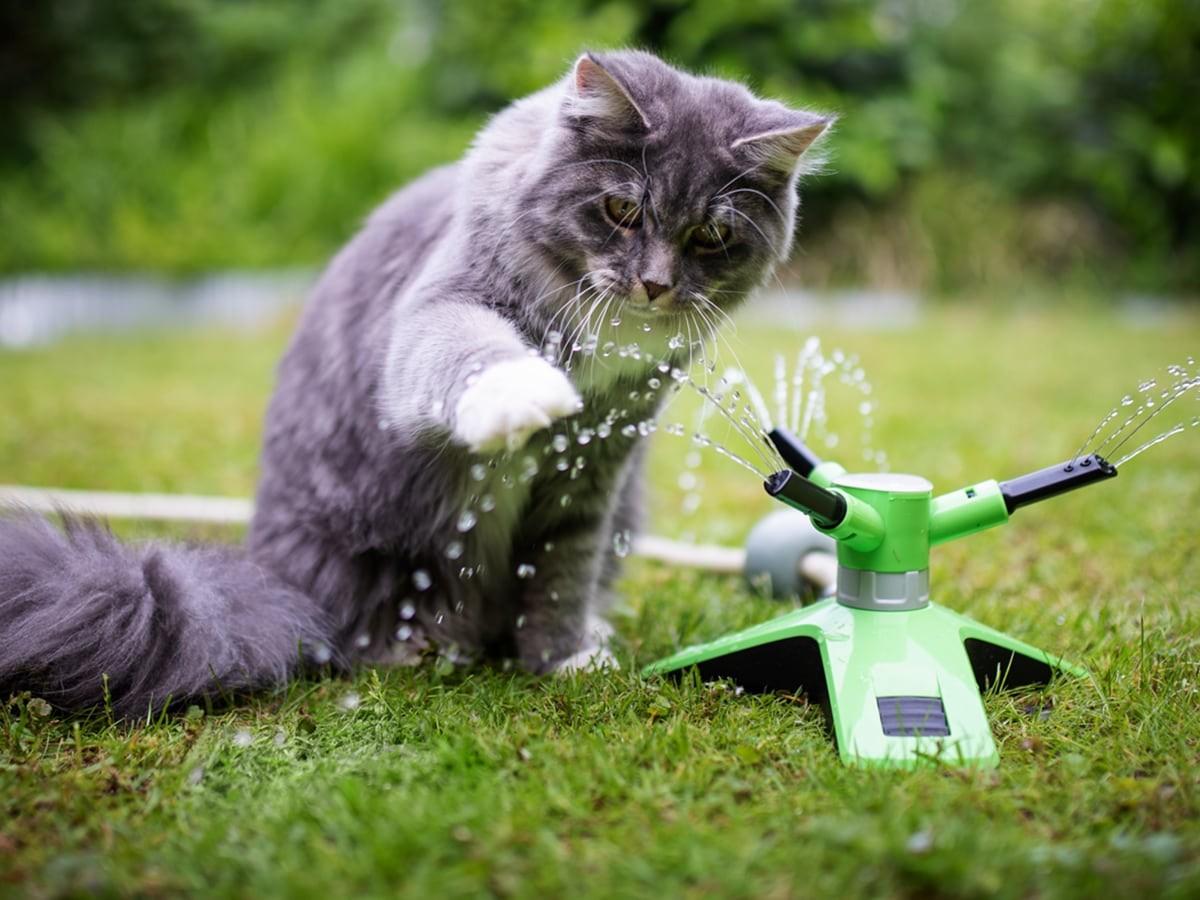As summer temperatures soar, you might notice your feline friend acting a bit sluggish. Whether your cat spends most of their time indoors, outdoors, or enjoys both, they have clever ways to stay cool just like us. But unlike humans who sweat profusely, how exactly do cats keep themselves from overheating?
How Cats Cool Their Bodies
Contrary to popular belief, cats don't sweat through their paws. The moisture on their paws and nose helps with scent detection, not temperature regulation. Cats, however, have developed other effective methods to cool down:
Grooming: Cats are meticulous groomers, and their saliva acts like a natural evaporative coolant. As they lick their fur, the saliva evaporates, taking away heat from their body.
Panting: While less common than in dogs, panting is another way cats cool down. If you notice your cat panting heavily, it's a sign they're overheating and need immediate attention.
Seeking Cool Surfaces: Cats have a keen sense of temperature and instinctively seek out cooler areas. You might find them sprawled on tile floors, napping in shady spots outdoors, or curling up near air vents.
A Cat's Fur: Friend, Not Foe: You might think shaving your cat in hot weather would help them cool down, but their fur coat actually plays a vital role in temperature regulation. It acts as insulation, preventing excessive heat absorption and keeping their body temperature stable. Regular brushing, however, can be helpful by removing loose fur that can trap heat.
How Do Cats Get Rid of Body Heat?
Unlike humans who sweat all over their bodies, cats have a more limited sweating mechanism. Instead, they rely on several methods to dissipate body heat:
Evaporation: As mentioned earlier, licking their fur and panting both utilize evaporation for cooling. The moisture on their fur or tongue absorbs heat and cools as it evaporates.
Vasodilation: When your cat gets hot, their blood vessels near the skin's surface widen. This increases blood flow to the skin, allowing excess heat to radiate outward.
Respiration: While panting isn't as common as in dogs, cats will also breathe faster when hot to help expel heat through rapid breaths.
Signs of Overheating in Cats
While cats are efficient at self-cooling, it's important to be aware of signs of overheating, especially during hot weather. These include:
If you notice any of these signs, take immediate action to cool down your cat and contact your veterinarian.
Keeping Your Cat Cool During Summer
Here are some tips to help your feline friend stay comfortable during hot weather:
Provide Plenty of Fresh Water: Ensure your cat has access to clean, cool water throughout the day. Consider using a pet fountain; some cats prefer moving water.
Create Cool Retreats: Offer your cat cool, shaded areas to relax in, both indoors and outdoors. Cardboard boxes lined with towels, cat beds placed near cool floors, or shady spots in your yard are all great options.
Limit Sun Exposure: Keep your cat indoors during the hottest part of the day, typically between 10 am and 4 pm. Close curtains or blinds on sunny windows to keep the house cooler.
Air Conditioning: If you have air conditioning, keep your home at a comfortable temperature for both you and your cat.
Cooling Mats or Vests: These pet-specific cooling mats or vests can provide additional relief for your cat on very hot days.
Wet Washcloth Trick: In extreme cases, you can dampen a washcloth with cool water and gently wipe down your cat's fur (avoiding the head).
By understanding how cats cool themselves down and taking steps to keep them comfortable during hot weather, you can ensure your feline companion enjoys a safe and happy summer.
Remember: If you have any concerns about your cat's health or their ability to cope with the heat, always consult your veterinarian for personalized advice.
Key Takeaways
Summer brings sunshine and warmth, but it's also important to stay cool and safe for both you and your feline companion. By understanding how cats regulate their body temperature and taking steps to keep them comfortable, you can ensure they enjoy a happy and healthy summer. Remember, providing them with access to water, shade, and cool retreats is crucial. If you have any concerns about your cat's well-being in hot weather, always consult your veterinarian for personalized advice.

I've had the privilege of immersing myself in the realm of pet safety. As the owner of an energetic mini golden doodle, I know just how stressful being a pet owner can be. I am dedicated to ensuring our beloved pets enjoy a life brimming with good health.












